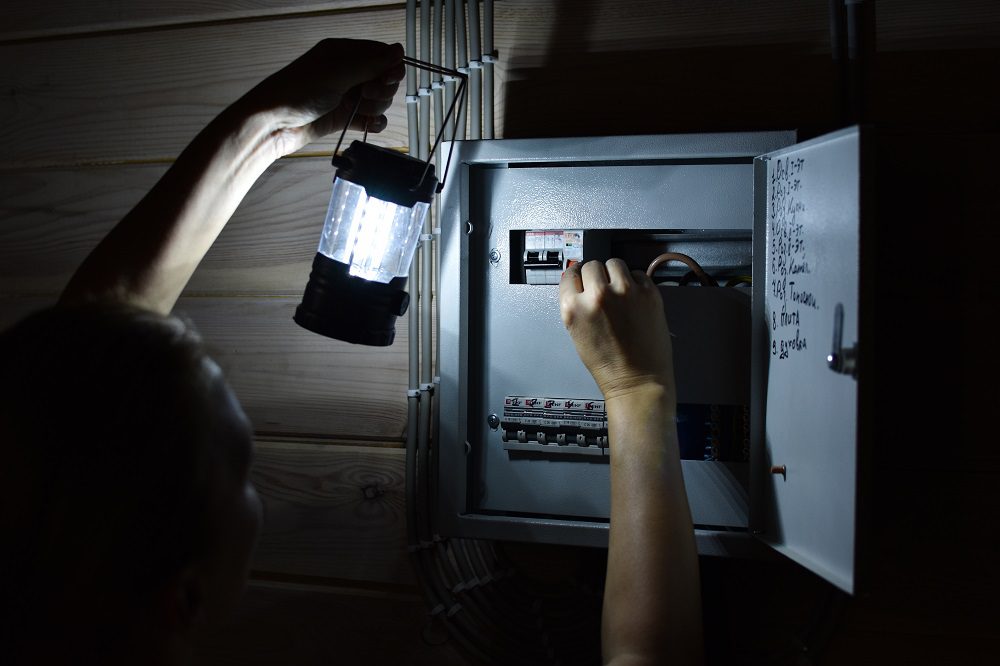
How to Tell When a Room Needs New Wiring
A room can look fresh with new paint and fixtures, yet hide aging conductors behind the drywall. In Charlotte homes built before the mid-90s, wiring often shows its age right when families plug in more devices, add space heaters in winter, or renovate. Knowing the early signs prevents nuisance trips, wasted energy, and real fire risk. It also helps set a realistic budget for residential electrical wiring Charlotte NC upgrades.
Clear warning signs a room needs rewiring
Flickering lights that change when appliances start up point to voltage drop on undersized or loose connections. If a lamp brightens when a space heater turns off, the circuit is likely overloaded or the branch wiring has resistance from age or corrosion. Warm or discolored outlets indicate heat at the termination. That heat comes from loosened screws, backstab connections failing, or aluminum-to-copper junctions that need correction.
Frequent breaker trips on one room’s circuit tell a story as well. A 15-amp bedroom circuit that trips when a vacuum, hair dryer, or window AC runs likely has too many outlets on one run or older 14 AWG wiring mixed with high-load use. A breaker that feels mushy or trips late should be evaluated, but consistent trips usually trace back to wiring or load, not the breaker.
Buzzing switches, especially dimmers, often mean incorrect pairing between control and LED lamps, but persistent buzz paired with warmth can signal loose neutrals or a failing switch loop. If a switch plate tingles or a metal lamp shocks a hand, stop and call an electrical wireman immediately. That can indicate lost grounding or a bootleg neutral, both unsafe.
Smell matters. A faint fishy or hot-plastic odor near outlets or at the panel is a classic red flag. It comes and goes, often stronger after heavy use or at night when loads climb for heating or charging.
Age matters: knob-and-tube, aluminum, and mixed wiring
Homes in neighborhoods like Dilworth, Plaza Midwood, and Wesley Heights still show knob-and-tube in walls and ceilings. It lacks a grounding conductor and struggles with insulation-packed cavities. It can be safe if untouched, but once tapped for new outlets or buried in insulation, it runs hot and brittle. Those rooms should be evaluated for rewiring.
Aluminum branch-circuit wiring, common from late 1960s to mid-1970s builds in parts of East Charlotte and older condos in SouthPark, expands and contracts more than copper. Over decades, terminations loosen. Special connectors and antioxidant compound help, but in high-use rooms an upgrade to copper often avoids recurring service calls.
Many 1980s homes combine grounded copper in kitchens and baths with ungrounded circuits in bedrooms. That mix shows up as two-prong outlets next to three-prong ones. Any room with electronics needs a proper equipment ground or a GFCI/AFCI strategy laid out by a licensed electrician.

Daily-use stress tests you already do
ewingelectricco.com electrical wiring near meSmall patterns reveal wiring health. If phone chargers fail early in one bedroom but last in another, check that branch circuit. If dimmable LEDs strobe at low settings even after swapping bulbs, suspect the neutral path or a shared neutral with a bootleg connection. Extension cords that feel warm, or power strips used as permanent fixtures, mean the room lacks dedicated outlets or the circuit needs a fresh layout with modern spacing and arc-fault protection.
Seasonal loads expose weak links. In winter, space heaters on a 15-amp bedroom circuit can draw 12.5 amps alone. Add a TV and a gaming console and the breaker will trip. In summer, a window unit on that same circuit can push wiring past its comfort zone. If a room cannot handle a heater or AC without drama, a rewiring plan brings relief and safety.
Safety code updates worth having in living spaces
New wiring does more than carry current. Modern code expects arc-fault protection in habitable rooms, tamper-resistant receptacles for child safety, and properly bonded metal boxes. Bedrooms benefit from dedicated circuits for window units or stationary equipment. Home offices need clean power with well-placed receptacles to eliminate daisychained strips. In South End and NoDa remodels, adding a 20-amp circuit for a media wall is common. These aren’t luxuries; they protect electronics and people.
GFCI protection has broadened, and dual-function AFCI/GFCI breakers can resolve both shock and arc hazards in one tool. An experienced electrical wireman knows when a breaker-based solution is best versus a device-level GFCI, especially in older multiwire branch circuits common in classic Charlotte bungalows.
What an electrician looks for during an assessment
A professional starts with the panel: breaker size versus conductor gauge, signs of heat on bus stabs, double-tapped breakers, and open knockouts. They test receptacles for correct polarity, grounding, and voltage drop under load. They remove a sampling of devices to inspect splices, backstabbed connections, cloth insulation, and aluminum terminations.
In plaster homes around Myers Park, they also evaluate box fill and whether existing boxes can support ceiling fans. For rooms with frequent electronics issues, they check shared neutrals and pigtail quality. If insulation covers attic runs, they verify cable rating and look for splices outside junction boxes. The result is a scope that might range from a few strategic new circuits to full rewiring of a room or floor.
What rewiring looks like in a lived-in home
Rewiring does not require gutting a room. Good electrical wiring services use a blend of attic fishing, baseboard access, and strategic cut-and-patch. Expect small holes near top plates, neat cuts behind crown or below window lines, and a tidy work area. In many Charlotte ranch homes, a room rewiring can finish in a day or two with patch-ready openings. Plaster homes may take longer due to careful drilling and repair.
Homeowners often pair rewiring with a few upgrades: adding a dedicated 20-amp circuit for a home office, extra USB-C receptacles by the bed, or a ceiling fan box rated for 70 pounds. It is efficient to add these while walls are open rather than calling for a second visit.
Budgeting: electrical wiring Charlotte NC cost ranges
Costs vary with access, wall type, and how much the room needs. Typical ranges seen locally:
- Single bedroom rewiring with copper, grounded outlets, AFCI protection, and patch-ready holes: $1,200 to $2,200
- Home office with added data conduit, surge strategy, and dedicated 20-amp circuit: $1,600 to $3,000
Plaster, masonry walls, or knob-and-tube remediation increase labor. Panel upgrades, if required for capacity, usually add $1,800 to $3,500 depending on service size and grounding. An accurate quote comes after an on-site look; square footage alone does not tell the story.
Repair or rewire: making the call
Targeted repair fits cases where wiring is copper, insulation is intact, and problems trace to a few failed connections or a tired breaker. Upgrading a handful of outlets to tamper-resistant, adding an AFCI breaker, and correcting a bad splice may be enough.
Full or partial rewiring makes sense when any of these show up: aluminum branch circuits with recurring heat at terminations, ungrounded two-wire cable in rooms with electronics, mixed DIY add-ons, or repeated nuisance trips under normal loads. Kitchens, baths, and laundry spaces have special rules; bedrooms and offices still deserve modern grounding and arc-fault protection for safety and insurance compliance.
DIY temptations and where they go wrong
Swapping a light fixture is one thing. Extending a circuit behind walls is another. Common mistakes seen across Charlotte include mixing backstab and screw connections on the same run, under-sized wirenuts on multiwire splices, burying junctions behind drywall, and using 14 AWG on a 20-amp breaker. These choices can pass a casual glance yet fail under real load. A licensed electrical wiring repair service prevents those pitfalls and signs off work that stands up to inspection.

Signals your outlets and lights are overdue
Use this quick room check:
- Two-prong outlets or cheater adapters in use
- Scorch marks, warmth, or a fishy odor near devices
- Frequent breaker trips when using a vacuum, heater, or AC
- Lights dim when appliances start or brighten when they stop
- Buzzing switches or flicker that bulb swaps don’t fix
If two or more apply, it is time to talk through rewiring Charlotte NC options.
Timing, permits, and inspections in Charlotte
Most room rewires need a permit and an inspection by the City of Charlotte or Mecklenburg County. A reputable contractor pulls the permit, schedules inspection, and provides clear labeling of new circuits. Lead times run faster in winter, while spring and early fall book quickly. Many projects complete within one to three days per room, plus paint touch-ups. Condo work may require HOA approval and specific work windows.

Why homeowners search “electrical wiring near me”
Local matters. An electrician who works daily in Ballantyne, Steele Creek, and NoDa knows attic access quirks, common builder wiring patterns, and what local inspectors expect. That local knowledge cuts guesswork and reduces callbacks. It also helps predict which rooms will need new home runs to the panel and where fishing is practical without major drywall work.
Work with Ewing Electric Co.
Ewing Electric Co. handles residential electrical wiring Charlotte NC projects with straightforward scopes, clean work areas, and code-first solutions. The team diagnoses issues without upselling, explains options in plain terms, and gives clear pricing before work begins. Whether the room needs a few smart fixes or a full rewire, they map the route, pull the permit, and leave the space ready for paint.
Homeowners comparing electrical wiring Charlotte NC cost can request a quick assessment. A licensed electrical wireman will test the circuit, open a few devices, and provide a plan. For urgent hazards like warm outlets or burning odors, same-day service is available across Charlotte, including University City, SouthPark, Belmont, and surrounding areas.
If a room has been hinting at trouble, do not wait for the next breaker trip. Reach out to Ewing Electric Co. for electrical wiring services that make the space safe, quiet, and ready for your daily life.
Ewing Electric Co provides dependable residential and commercial electrical services in Charlotte, NC. Family-owned for over 35 years, we handle electrical panel upgrades, EV charger installation, generator installation, whole-home rewiring, and 24/7 emergency repairs. Our licensed electricians deliver code-compliant, energy-efficient solutions with honest pricing and careful workmanship. From quick home fixes to full commercial installations, we’re known for reliable service done right the first time. Proudly serving Charlotte, Matthews, Mint Hill, and nearby communities. Ewing Electric Co
7316 Wallace Rd STE D Phone: (704) 804-3320 Website:
https://ewingelectricco.com/ |
Electric Company in Charlotte
Social:
Facebook |
Instagram |
Twitter |
LinkedIn |
Yelp |
Angi |
BBB
Map: View on Google Maps
Charlotte,
NC
28212,
USA